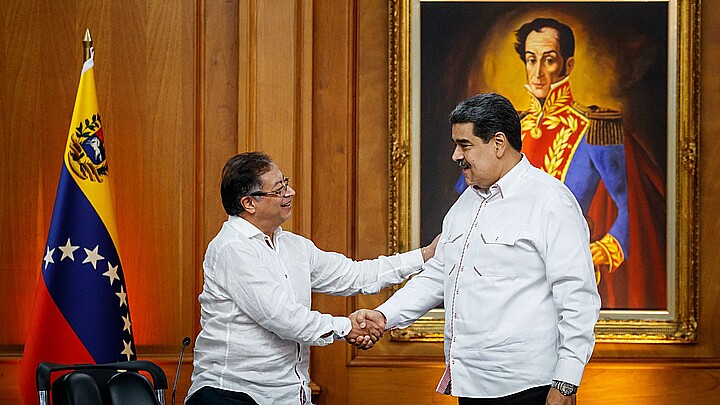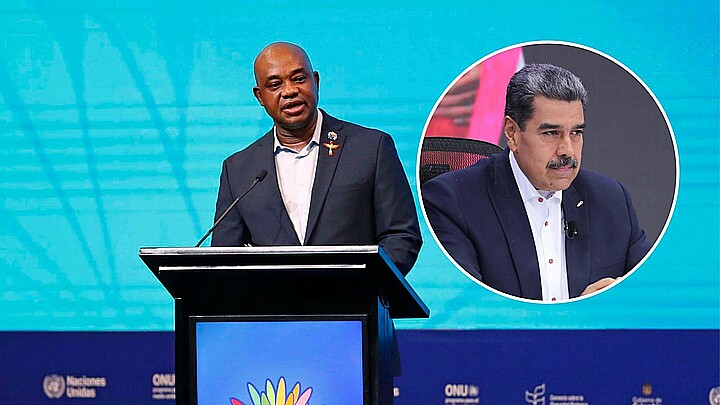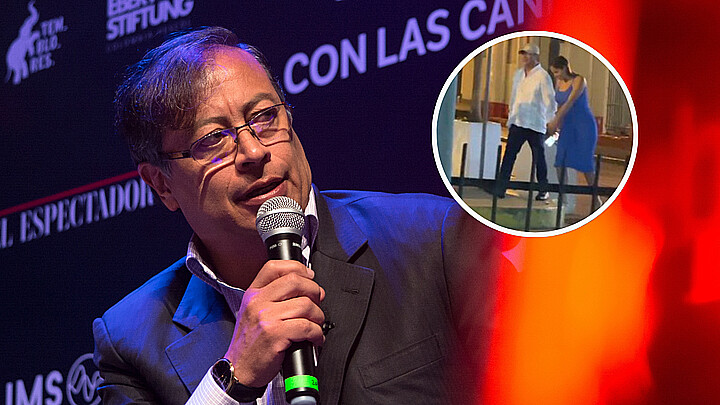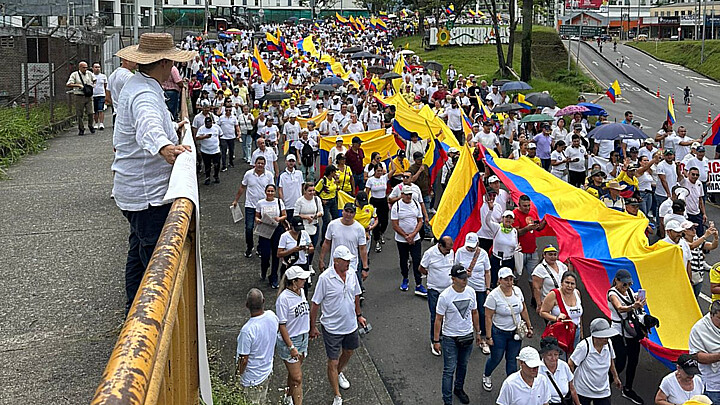Politics
Colombian investigators reveal how 'Primera Linea' group kidnapped, tortured police during protests
An investigation showed images and videos of a man tortured by this group in an armed shelter
April 4, 2022 6:43pm
Updated: April 5, 2022 4:29pm
An investigation published on Sunday revealed how members of the so-called 'Primera Linea' group, born during the protests in Colombia in 2021, had designed a facility to torture and kidnap police officers in Bogota and Cali.
According to the investigation, this movement, which is a collective of non-conformist or "indignant" young people who cover their faces with hoods, was formed during the anti-government demonstrations in Colombia and has made headlines for various acts of vandalism to public and private establishments.
The program “Los Informantes,” aired on the Colombian channel Caracol, showed images and videos of an armed shelter near Portal Americas (east of Bogota), where a man was being tortured by this group. Apparently, the perpetrators thought he was a member of the police.
“Coordinaron una tortura en contra de dos personas que creyeron que eran de la Fuerza Pública. Atentaron en contra de ellos, los desnudaron, les pegaron, los llenaron de pintura”, reveló uno de los investigadores, quien no mostró su identidad ante las cámaras.
The program shared a video fragment depicting one of the victims. During the clip, a woman is in charge of authorizing whether the man "could receive another beating" in Parque Mundo Kennedy, in the southwest of the Colombian capital.
Journalist Nena Arrázola revealed during the program that none of those involved were members of the security forces but two workers of a Bogotá company.
A police officer who led the investigation confirmed the statements. He said that those who ran this place "believed that they were infiltrators and went so far as to torture them, just for thinking or having a different ideology."
The officer that infiltrated the group told the newspaper that the leaders of the group had knowledge of military combat and had been the ones who assembled the uniforms worn by the youths during the social demonstrations.
“Empezamos a hacer el minuto a minuto del autodenominado ‘Grupo delincuencial de la Primera Línea’. Esta Primera Línea, del Portal Resistencia (Portal de las Américas) venía siendo liderada por alias 19, alias Mayora, alias Calarcá y alias Soldado. Alias 19 decía que tenía instrucción para combatir a la Fuerza Pública, para que los jóvenes se pudieran defender. Hacían escudos artesanales”, señaló.
Members “Calarca” and “Soldado” both served in the military and know the institution, while “Mayora” called himself that to command respect. According to Arrázola, group member “19” observed the protests from a cell phone inside his cell, which he used to send messages to the police.
In the Colombian city of Cali, policemen infiltrated the “Primera Linea” in Puerto Rellena and on the Pan-American Highway. They explained that they had photographs of "when the birthdays of the Primera Linea were celebrated".
Investigators revealed that social media such as WhatsApp and Facebook were useful in tracking down the vandalists during demonstrations in this area of the country.
According to the statements, a young woman, a teacher and explosives expert, who went by the name of Karina or La Flaca, had privileged information on the movements of the security forces, and that, it seems, was what made the group of young people to be in front, the journalist reported.
The investigation also revealed the involvement of foreigners, including Chilean citizens who helped organize the whole thing and Venezuelan migrants that gave them money to do harm and disrupt order.
There is more data in the investigation that demonstrates the financing of the Colombian guerrillas of the National Liberation Army (ELN) and the dissidents of the FARC.
"We found clear links with ELN and FARC drug trafficking, both Ivan Mordisco and the second “narcotalia'. We can confront it with physical evidence and an articulation of damaging the cities", according to the declarations of the Police Director, General Jorge Luis Vargas.
The investigation has not yet concluded, but the progress is impactful: 272 people have been captured and 84 prosecuted. Additionally, there are 115 people in intramural detention and others at home.
Detrás del colectivo que agrupa a miles de jóvenes indignados, que se conoce como la Primera Línea, se esconde un grupo de capuchas que tiene hasta centros de tortura y son una organización criminal.
— Los Informantes (@InformantesTV) April 2, 2022
La historia el domingo en #LosInformantes a las 8:30 p.m. pic.twitter.com/3Hq3pMOQvr










